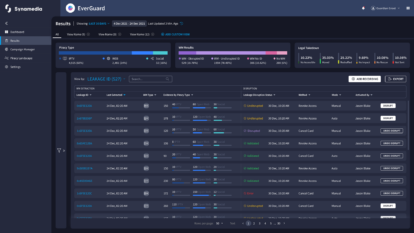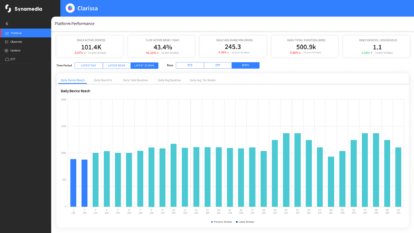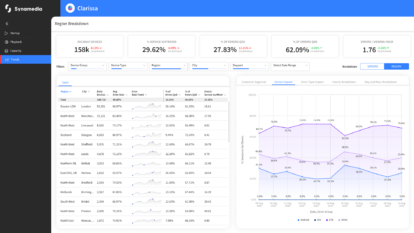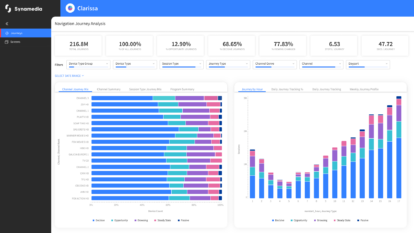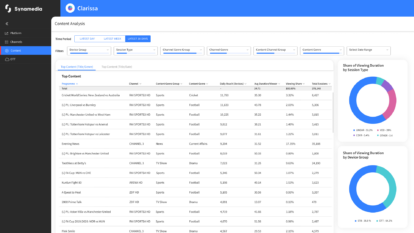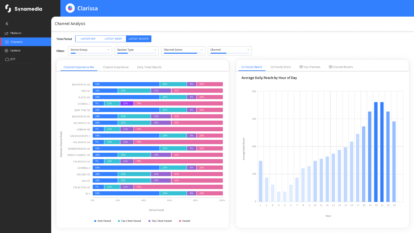Who doesn’t love fresh coffee in the morning? But it can be a lot for a coffee connoisseur like myself – weighing the right beans, grinding them, preparing the machine, choosing the right settings, etc. The time investment for that perfect morning “pick me up” can be intensive, especially when caring about preserving the taste of premium coffee. The same can hold true for video service providers looking to move quickly, cut costs and deliver high quality viewing experiences.
As the video streaming industry continues to grow, video service providers are looking for ways to stay competitive by cutting costs, and making operations more efficient, flexible and sustainable while maintaining high quality of service for their premium content. Synamedia is here to meet these demands and make things simple for our customers by making our solutions available to broader audiences through more channels. Both Quortex Play and Quortex Link are now available on the AWS Marketplace, making it easy for all Amazon Web Services (AWS) customers to gain the benefits of scalable just-in-time video processing and one-click cloud distribution.
Just like a coffee subscription and a one-click coffee machine streamlines the flavorful drinks caffeine lovers crave, accessing Quortex solutions through AWS Marketplace simplifies the process for AWS customers to purchase, deploy and onboard our SaaS solutions that transform their video processing and distribution. Importantly, it streamlines procurement by consolidating billing and reporting and can lower costs by allowing AWS customers to fulfill spending commitments that maximise AWS discounts, all while preserving the quality of their content.
Synamedia is committed to delivering more efficient cloud-based streaming. With our Quortex SaaS solutions, video service providers can build video streams on-the-fly, cutting cloud costs, and efficiently deliver live video streams to partners globally in one-click. Our Quortex solutions are specifically designed to optimize resources to the maximum while maintaining top video quality. They reduce TCO and initial investment by applying smart resource allocation techniques.
Developed entirely in the cloud from the ground up, our Quortex portfolio ensures cost-effective and reliable streaming, without compromising video quality, reliability, or latency.
Quortex Play
Quortex Play’s secret sauce is its patented ‘just-in-time’ technology that builds video streams for live events and linear channels on-the-fly. It is used by broadcasters and content owners to efficiently deliver premium D2C content from World Cup matches watched by nations to niche long-tail content.
Customers can launch and deliver live events or channels in minutes. As well as operational agility, it provides the unrivalled resilience and risk avoidance customers need. Furthermore, it helps customers meet their environmental targets by reducing processing wastage. If no-one is watching a channel, e.g. when there is no live sport, it frees up those resources.
Quortex Link
Quortex Link is a self-service SaaS platform to schedule and deliver B2B live video streams from anywhere to any partner around the world, over the cloud. It allows customers to move away from costly satellite and dedicated fiber links. It makes it possible to deliver your premium content to one, dozens or hundreds of partners and only pay for the infrastructure you use with our pay-as-you-go pricing model. All operations are managed using a centralised dashboard, allowing you to set up links within minutes or fully automated through our API.
Visit Synamedia Quortex in the AWS Marketplace or learn more about Quortex here.
About the Author
Dr. Jérôme Viéron is the senior director, R&D streaming engineering at Synamedia. He was most recently Chief Technology officer at Quortex, which he co-founded in 2018. Jérôme has over 25 years of experience in broadcast TV and internet streaming, including at Technicolor and Thomson R&D. With more than 80 patents to his name, he has been involved in technology research projects including AV1, HEVC, HDR, 360 and UHD, and has contributed to standardisation efforts led by ISO and ITU-T groups.
Jérôme has a PhD in computer science from the University of Rennes 1.

